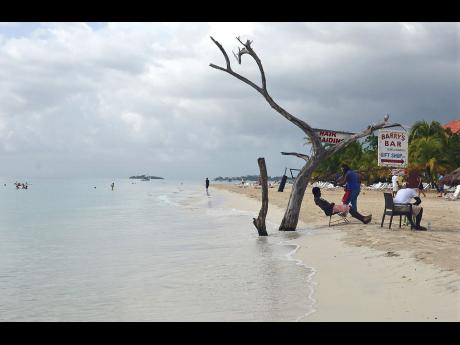Beach sand policy needed – Vaz
Recently appointed Opposition Spokesman on Land and Environment Daryl Vaz is appealing to government ministers Robert Pickersgill and Phillip Paulwell to move swiftly to develop a policy and guidelines as it relates to mining beach sand, and legal zones to do so.
Responding to the recent confusion over the mining of sand in Negril, Vaz noted that in instances although a mining licence may be granted, the Development Order does not allow for the removal of sand.
According to Vaz, with the heightened demand for sand because of substantial construction of hotels, beachfront properties and those in the aggregate business, it requires Pickersgill, the minister with responsibility for land and the environment; and Paulwell, who has responsibility for mining, to work with key stakeholders to develop this well-needed policy.
He argued that a policy with operational guidelines will allow greater accountability and transparency and, most important, preservation of the environment.
NEGATIVE IMPACT
"Without this in place, illegal sand mining will continue with growing negative impact on our shoreline," said Vaz.
"The situation is highlighted by the illegal removal of sand from Harmony Cove last year, as well as in Coral Springs, Trelawny," added Vaz.
The opposition spokesman bemoaned the fact that a number of companies had applied for offshore licences which were denied, although they had the requisite supporting documents.
He said with a definitive policy in place there would be a level playing field.
"Millions of dollars in foreign exchange, which the country can scarcely afford, are being spent each year to import beach sand from our Caribbean neighbours Guyana, The Bahamas and the Turks and Caicos Islands for beach replenishment.
"With the development of a proper policy and guidelines, a local industry could be developed with that spend going into our local economy." He said that there would be no need to reinvent the wheel as studies exist which were done by Professor Edward Robinson in 2004 based on a visit to the Brune Bank, a shallow-water bank on the south coast shelf of Jamaica
He said the report recommended "a repeat visit to the bank to further assess the size and shape", and that "there was provision in the budget for such a visit".
"The illegal mining and transportation of sand, which has now become a lucrative business, cannot be allowed to continue at the peril of the environment and our shorelines in places such as Negril, which have seen significant erosion in recent times as a consequence of natural and climatic conditions," declared Vaz.


